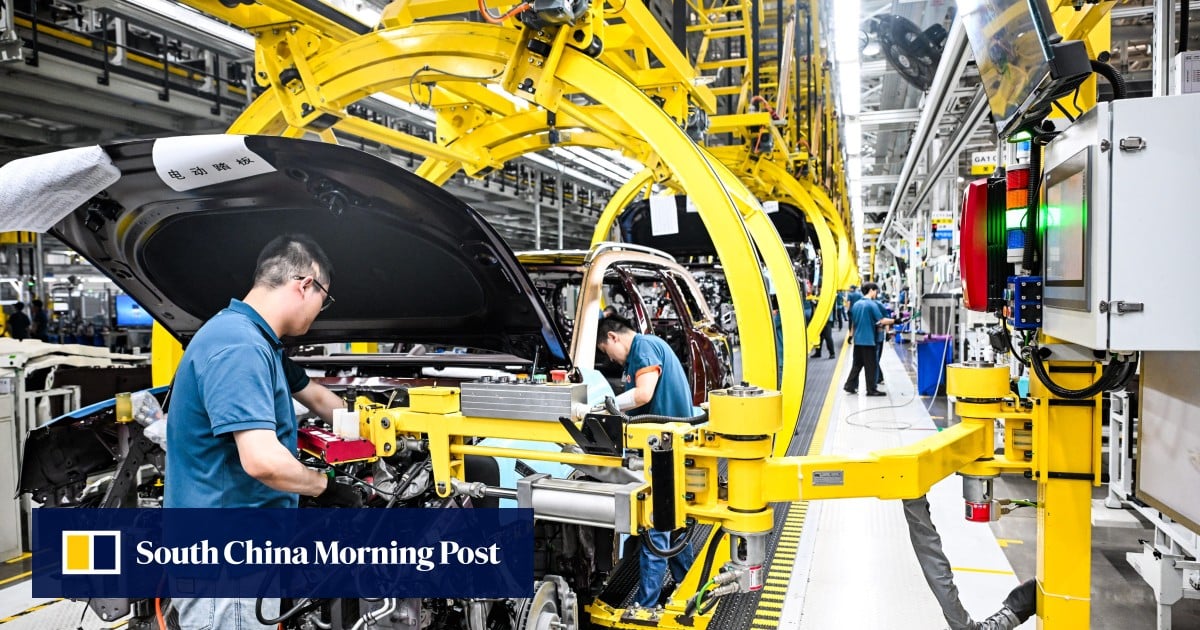Beijing has pledged to prevent industrial hollowing-out by safeguarding the share of manufacturing in its economy, noting that the trend has historically proven difficult to reverse in an official outline of priorities for the next five years.
As nations industrialise, the share of manufacturing in their economies typically peaks before declining. If left unchecked, the trend could lead to deindustrialisation, undermining economic strength and resilience, according to a book released last week by the Communist Party leadership. The publication offered a detailed interpretation of the proposals for the coming 15th five-year plan.
“In recent years, some advanced economies have attempted to revive their manufacturing sectors after deindustrialisation, but it has proven to be extremely difficult,” the authors said.
Last month, the Communist Party’s Central Committee unveiled the proposals for the 2026-2030 development blueprint, with a focus on building a modern industrial system by “maintaining a reasonable share of manufacturing” – though without setting a specific target.
For a populous, developing country like China, manufacturing forms the foundation of a robust real economy, the book’s authors said. This explained China’s prioritisation of its vast industrial base, they added, noting the country would double down on manufacturing amid growing unilateralism and protectionism.
China is the only country that possesses all industrial categories under the UN’s classification system. Manufacturing value added accounted for 24.9 per cent of gross domestic product in 2024, while the country has been the world’s largest manufacturer for 15 consecutive years, the authors said.
Dong Yu, executive vice-president of the China Institute for Development Planning at Tsinghua University, said Beijing had long been committed to preserving manufacturing’s share in the economy. “The 14th five-year plan already has such a requirement,” he said.

